No more Tiger Kings, cub-petting: Big Cat Public Safety Act passes in U.S. Senate
- Oops!Something went wrong.Please try again later.
- Oops!Something went wrong.Please try again later.
A decade after it was first introduced, the U.S. Senate has passed the Big Cat Public Safety Act, sending it to President Joe Biden's desk for a signature.
The act, once in place, prohibits private individuals from possessing lions, tigers, leopards, cheetahs, jaguars, cougars or any hybrid of these species.
This prohibition applies to big cats being kept as pets — sanctuaries, universities and zoos would be exempt. Current big cat owners would be grandfathered in but will be required to register their animals.
Animal rescue advocates are celebrating the act's passage.
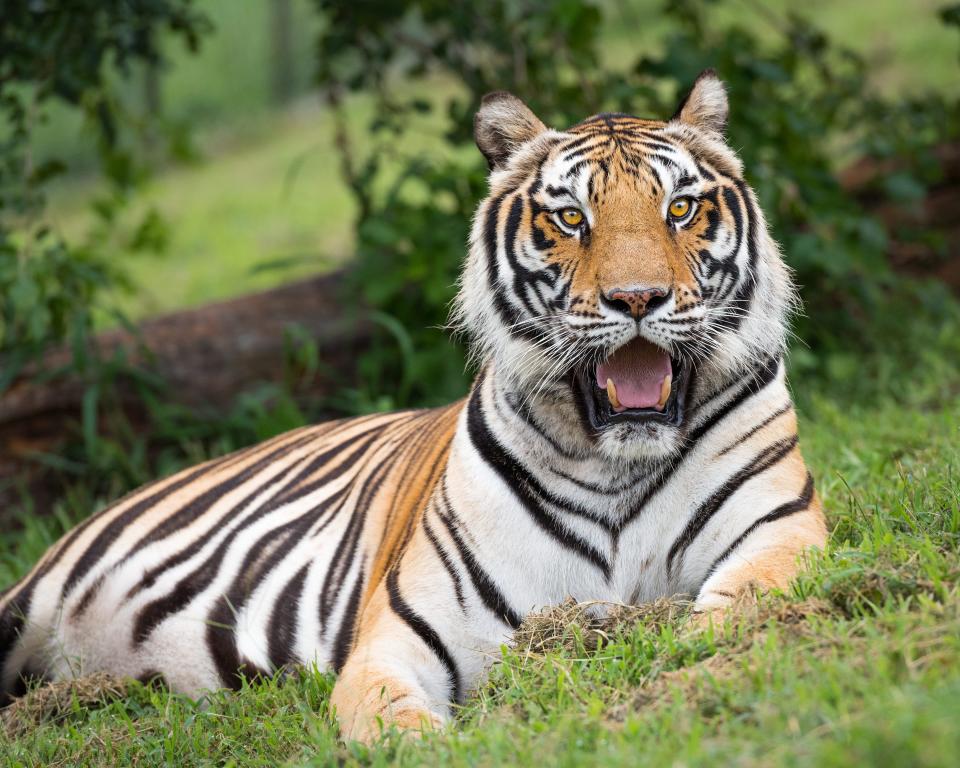
Officials with Turpentine Creek Wildlife Refuge, based in Eureka Springs, Ark., said in a news release that this legislation "effective ends the pay-for-play lucrative and exploitative cub-petting industry, which is the primary driver behind the rampant overbreeding of exotic cats." Turpentine Creek Wildlife Refuge has been rescuing abandoned, abused and neglected big cats for more than 30 years and has helped in place more than 500 animals in that time.
More:Lioness, alone in a barn for years, rescued with others from abandoned Oklahoma roadside zoo
Scott Smith, vice president of the refuge, said in a phone interview the cub-petting industry fuels the breeding of big cats.
"This bill cuts that off," Smith said. "It stops in its tracks the unnecessary breeding just to supply these non-scrupulous facilities that are doing these activities and doing what we call speed breeding."
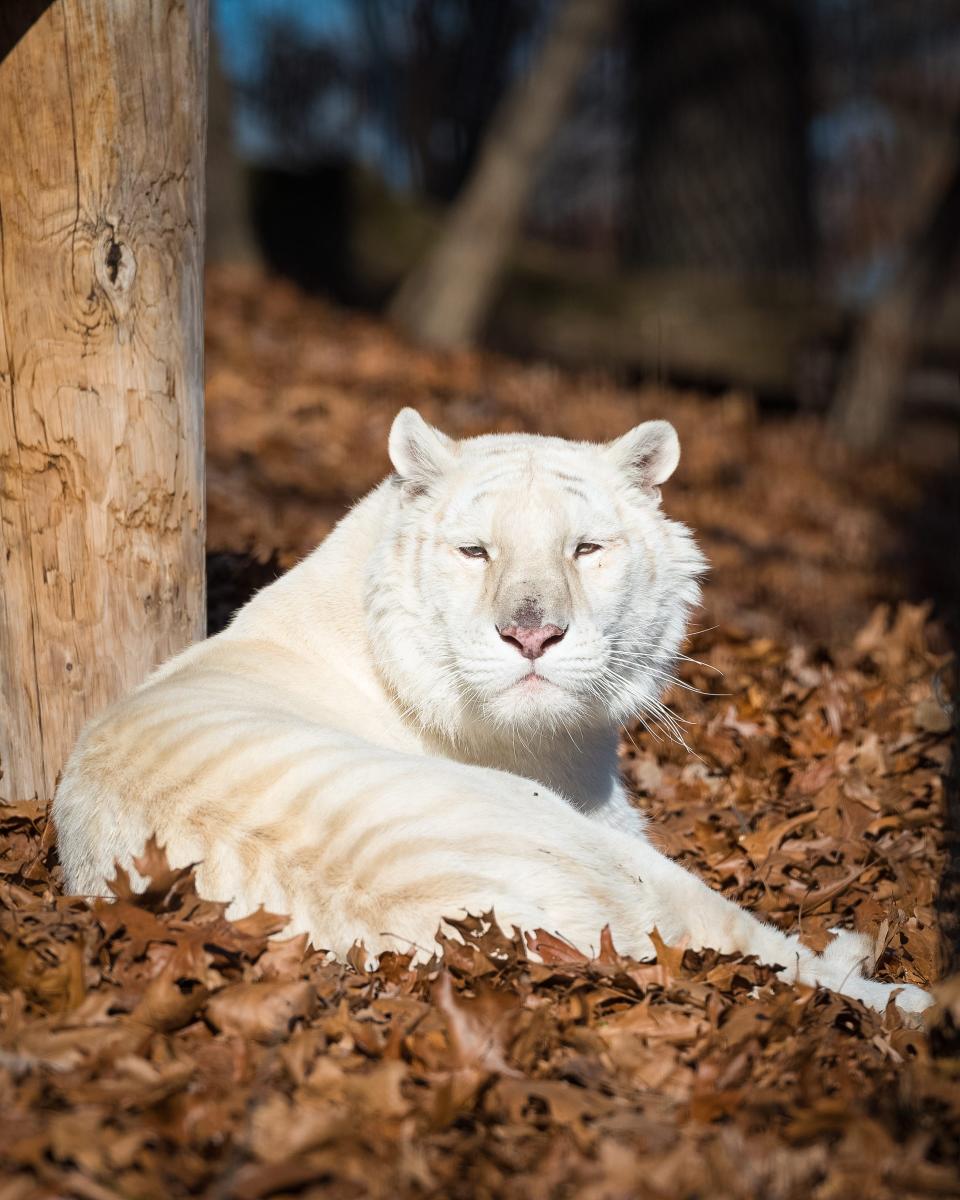
Smith recounted a tiger rescued from a Colorado facility a few years ago that had been bred four times in two years. She had four litters of cubs in that short period of time, and all went to the cub-petting industry, Smith said.
Looking to the future, Smith said "the ultimate goal" would be to not need big cat sanctuaries at all.
Social media manager of Carole Baskin's Big Cat Rescue hopes act will set example
Lawanna Mitchell, who lives in southwest Missouri and works as social media manager for Florida's Big Cat Rescue — founded by Carole Baskin — said the act will hopefully set an example and maybe help other species later.
"Unfortunately, you have to keep things in a narrow focus to be able to get the law through," Mitchell said.
Interactions with big cats can create safety issues, Mitchell said. There have been at least two tiger attacks in Missouri, both in 2008. A 26-year-old's leg had to be amputated after he was attacked by a tiger at an exotic animal farm in Warrenton and a 16-year-old was mauled by a tiger at a zoo in Branson West.
"The Big Cat Public Safety Act makes it illegal for the public to have contact with big cats or their babies," Mitchell said about the legislation, which bans paid interactive experiences like cub petting.
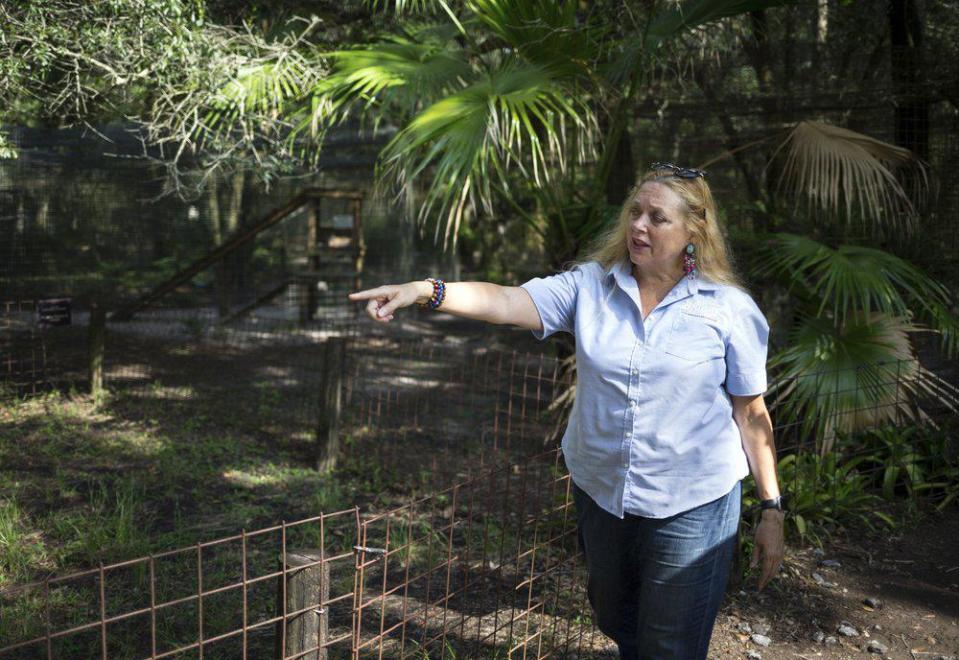
As the big cats grandfathered in by the act age out, the "private pet trade in big cats will be a thing of the past," Mitchell added.
Legislation was primed to move forward even before Netflix's 'Tiger King' series aired
The act solidifies the Department of Justice's case against people like Joseph Maldonado-Passage, also known as Joe Exotic, who was featured in Netflix's "Tiger King: Murder, Mayhem and Madness" in 2020. He is currently serving his sentence in prison after he was convicted of hiring hitmen to kill his chief critic, Carole Baskin, and for crimes involving his animals.
More:'Tiger King' star Joe Exotic resentenced to 21 years in prison in murder-for-hire case
"It really just puts an emphasis or an exclamation point on the fact that that show missed the opportunity to help the animals, and they just worried about showing the actions of humans," Smith said. "I guess they were entertaining, but they weren't doing this from the right place in the heart, that's for sure."
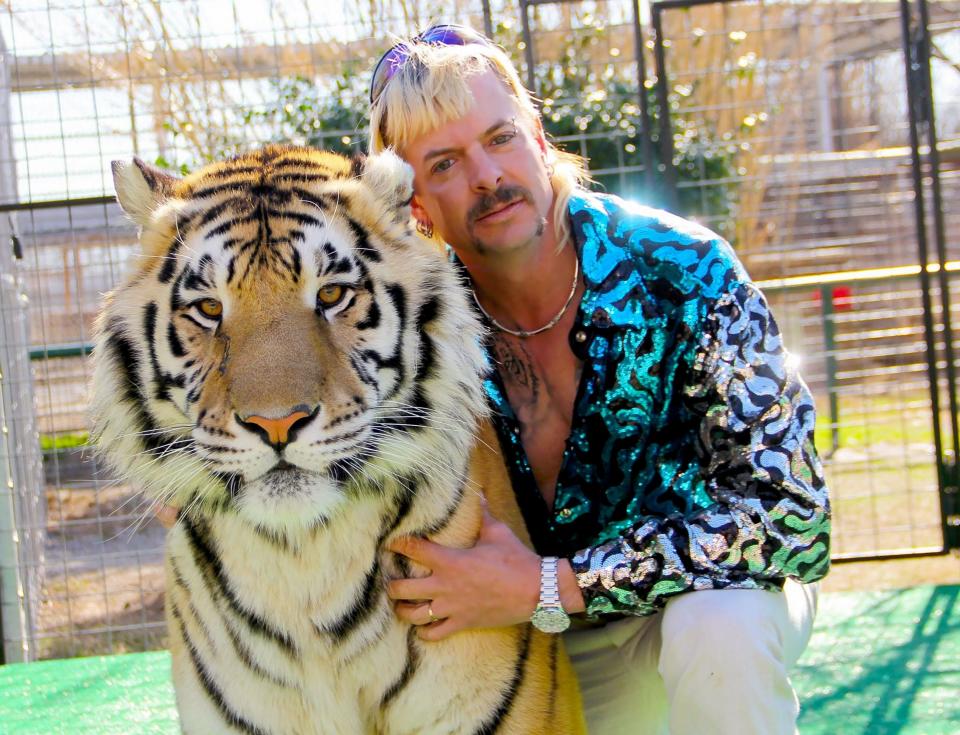
Turpentine Creek Wildlife Refuge, along with several other accredited sanctuaries, have played an instrumental role in rescuing big cats once the Department of Justice calls them in.
"The government don't have a tiger sanctuary where they can go confiscate Joe Exotic's 200 cats, and what are they gonna do with them?" Smith hypothesized.
More:Netflix releasing another 'Tiger King' episode, but not everyone is thrilled.
Since September 2020, the refuge has brought in 21 big cats that were part of the Tiger King underground as major players in the breeding of big cats were closed through Department of Justice actions, according to the sanctuary's news release.
Smith said sanctuaries and agencies also were instrumental in the 2021 removal of 68 protected lions, tigers, lion-tiger hybrids and a jaguar from Jeffrey and Lauren Lowe’s Tiger King Park in Thackerville, Okla.

Earlier this summer, Turpentine Creek Wildlife Refuge assisted in rescuing two generic tigers, a lion and a tiger hybrid from a northeast Oklahoma facility that once offered cub-petting and photo opportunities.
Smith hopes the big cats in grandfathered cases are well taken care of
The bill will take effect in the new year once Biden signs it. It will make it unlawful for anyone to "import, export, transport, sell, receive, acquire or purchase" big cats "in interstate or foreign commerce," Smith said.
"Nobody can breed them anymore unless you're part of the Species Survival Program or peer-reviewed programs like it," Smith said. "An ethical sanctuary doesn't breed either. So, if there's a sanctuary and they're breeding cats because they say they're conserving, that's just a cover for 'We're cub-petting somewhere.'"

Private individuals who already have big cats will be required to register them with the U.S. Fish and Wildlife Service.
"The ultimate goal would be they registered the animal and they follow the law," Smith said. "They don't breed them, don't load them up in their truck and go display them in town, let people pet them and they don't cross state lines. They keep the ones they have, they grow old and die naturally in their great care. That would be optimum."
Smith hopes the people who wish to "stay on the legal side of life and stay out of trouble" will do the right thing.
Sanctuaries are bracing for other ripples
While there is much celebration, Smith said there are still concerns. With the act not yet in play, those with big cats may be trying to breed cubs before the end of the year.
As the big cats breeding in the cub-petting industry dries up, Smith said the people who operate them may turn to other animals to increase profits.
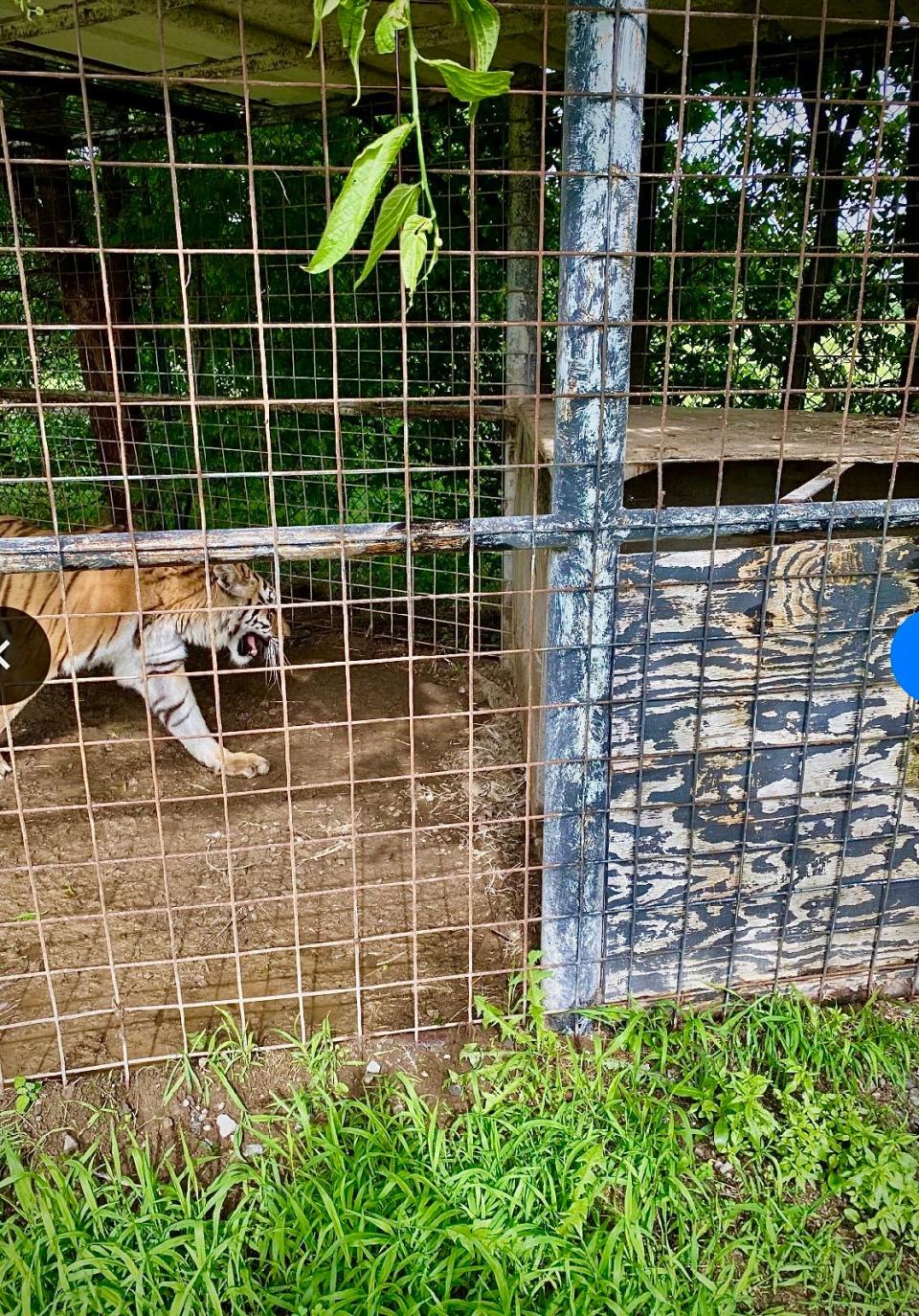
"There's a huge growing industry with black bears," Smith said. "It's becoming fashionable to get your picture made with a sloth. What's the next animal they're going to pull out of the crate?"
A hope is that the Big Cat Public Safety Act will be a precursor to stop the exotic animal trade entirely, Smith said.
With the implication of the bill, Smith said sanctuaries such as Turpentine Creek Wildlife Refuge are bracing for the floodgates to open as more big cats may need being rescued, but he anticipates it will stabilize.
The big cats that people have privately will hopefully grow old and be well taken care of with a proper diet, nutrition and stimulation for their minds, Smith said.
"Just feeding and watering them is really not enough," Smith said. "That's the bare minimum in the world, right?"
Sara Karnes is an Outdoors Reporter with the Springfield News-Leader. Follow along with her adventures on Twitter and Instagram @Sara_Karnes. Got a story to tell? Email her at skarnes@springfi.gannett.com.
This article originally appeared on Springfield News-Leader: No more Tiger Kings: Big Cat Public Safety Act passes in U.S. Senate

